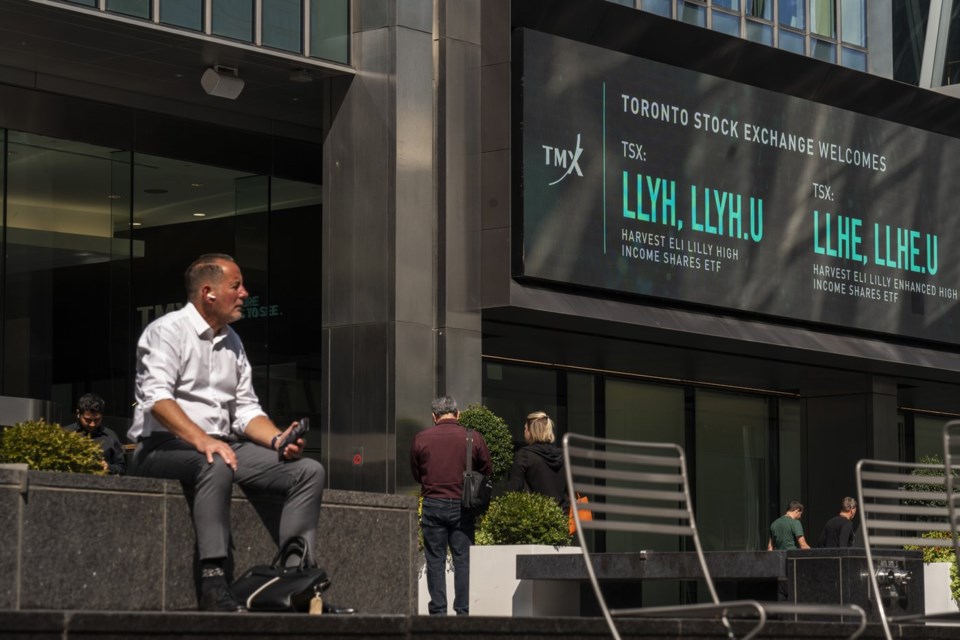Your group chat is blowing up with messages from friends boasting about how much they made on a recent high-flying stock, but you don't have anything to add to it — because you don't own it.
With Bay and Wall Streets trading in record territory, and certain high-flying stocks like Nvidia making headlines for their share price rallies, it's tempting for investors — especially those who are just starting their investment journey and who might not have a lot of money to invest right off the bat — to want to jump in on the action.
But before the fear of missing out gets the best of you, experts advise taking a moment to ask why you want to invest in that company.
"Many investors get caught in the hype," said Ryan Gubic, certified financial planner and founder of MRG Wealth Management.
"When you have high-performing or winning investments, they've already gone from potentially a low period to a high period," he said, which means there could be a chance that the stock might plateau or trade lower going forward.
But investing goes beyond the fear of missing out on gains. It's more about where an individual is in their financial journey, including their goals and time horizon, and tying that to their investment decisions, experts say.
Gubic said young investors need to consider their experience in investing and the amount of time they're dedicating to market and economic analysis. He suggests they speak with a financial adviser to get more clarity on their goals, risk tolerance and needs that can be mapped out in a holistic financial plan.
If an investor isn't doing their homework on what they're actually investing in, Gubic said, stock picking can quickly turn into speculative betting.
"Are you just chasing returns, or do you actually have a strategy and a process that you're following?" he asked.
There are also risks to buying individual stocks when they're trading in record territory.
"What are you willing to lose, and how will that impact you over the next one, five, 10, and 30 years?" Gubic said. "Be really truthful with yourself: Are you doing speculative gambling or are you doing systematic investing?"
While friends may often talk about their investing wins, few openly discuss their losses, said Mia Karmelic, executive financial consultant at IG Wealth Management.
"They don't always talk about it when they've lost money," she said. "I think it's important to bring that perspective in too."
While markets emerged from trade-related volatility earlier this year, the significant drops put many investors on edge. But the markets pulled through and have since delivered several new highs in the months that followed.
"Pullbacks are normal and they happen each year," Karmelic said. "Markets recover and go on to hit new highs."
She said investors shouldn't be hyper-fixated on where markets or individual stocks are at, but focus on growing money in the long run.
"I suggest investing in a diversified portfolio — ETFs, mutual funds — rather than individual stocks when there isn’t a large amount of savings to be invested," she said.
Young investors typically start off with a smaller amount of money and sometimes, they might take on more risk in search of returns.
"It's really hard to diversify into an individual stock portfolio when there isn't a substantial amount of money being invested," Karmelic said. Instead, she recommends investing on a regular basis.
"Average yourself into the markets, capture those different prices, and over the long term, you will do very well," she said.
But that doesn't mean putting your money to work in a stock that's trading at an all-time high is out of the question.
"There's certainly space for some of those stocks that are at all-time highs because chances are they can continue to hit new highs," said Karmelic.
But it's important to protect your portfolio from significant volatility, she said.
"It's important to invest in a portfolio of stocks that are diversified, that are not just in a specific industry, in a specific country," Karmelic said.
"I think investors will definitely feel the volatility more if they're only exposed to three or four individual companies," Karmelic said.
Even then, if an investor has their heart set on a high-flying stock, it should only make up a small percentage of their portfolio.
"When I look at a lot of my clients, an individual public equity holding might be around a one to two per cent weight, sometimes a little less," Gubic said.
This report by The Canadian Press was first published Sept. 2, 2025.
Ritika Dubey, The Canadian Press




